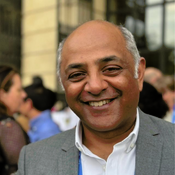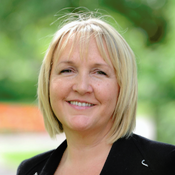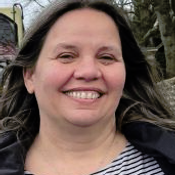Nominations & Governance Committee
We're growing!
Following a vote at the 2025 Annual General Meeting, the structure and composition of our governing committees and groups are changing.
We'll soon be recruiting new people into various leadership positions - check back soon for more information.

Narender Ramnani
Professor Narender Ramnani is a Professor of Neuroscience and Vice Dean for Equity, Diversity, and Inclusion in the School of Life Sciences and the Environment, Royal Holloway.
Narender's research focuses on understanding brain systems and the mechanisms behind human behaviour, particularly the interactions between the frontal lobe and cerebellar plasticity. His work explores how these processes support cognitive and motor learning, using techniques such as functional MRI, eye tracking, and behavioral methods.In addition to research, Prof Ramnani is passionate about research policy and sits on the UK Gov Parliamentary and Scientific Committee and Advance HE’s Race Equality Charter Governance Committee.

Julie Williams
Prof Julie Williams is a world leader in the genetics of Alzheimer’s disease and dementia and former Chief Scientific Advisor to the Welsh Government. She was the founding Centre Director for UK DRI at Cardiff from 2017-2024. With a background in Psychology, Julie obtained her PhD from the University of Wales Institute of Science and Technology. She joined University of Wales College of Medicine in 1991 as a Research Assistant, rising to Reader in Neuropsychological Genetics. As a co-lead in global initiatives her group has contributed to the discovery of over 40 susceptibility loci for AD. These findings implicate the role of immunity in disease development and specifically the contribution of microglia. Computational genetics of AD shows it to be a disease of multiple components which together, allow the prediction of those at high risk. Julie’s contribution to the field was recognised with a CBE in 2012. She is also an advocate for women in STEMM, commissioning a report that aimed to address the gender imbalance in science, published in 2016. Julie is also a member of the Council of the Academy of Medical Sciences and their champion in Wales.

Sarah King

Dani Wijesinghe
Having originally received their BSc in Biochemistry (University of Bristol, 2017), Dani has since gathered a decade of experience across early years education, psychoanalysis, philosophy of the biosciences, and community and trade union organising.
Still based in Bristol, Dani is currently Membership & Communities Manager of the BNA, where they are responsible for ensuring the best opportunities for the membership to grow their careers, develop their skills, and become actively involved in their organisation in order to make impactful collective interventions on the things that matter most to them – especially via the BNA Local Groups.
In addition, Dani is the staff lead for the BNA Scholars Programme – the BNA's flagship Equity, Diversity and Inclusion scheme to support career development among underrepresented groups in neuroscience – and for two of the organisation's governance bodies: the Early Career Researcher Advisory Board and the Equity, Diversity and Inclusion Advisory Board.
